Auxiliary : Use of do does and did for Class 2
In this concept, students will learn about auxiliary verbs in English, which include do, does, and did. These words are used to refer to different tenses in a sentence. The students will come across the auxiliary verb definition and examples of do, did, and does in sentences. Learn more about auxiliary verbs here.
In this learning concept, the students will learn:
- To use the negative forms of do, did, does.
- To avoid common mistakes while using this concept.
Each concept is explained to class 2 English students using examples, illustrations, and concept maps. After you go through a concept, assess the page.
Download the worksheets and check your answers with the do, does, did worksheet solutions for the concept auxiliary verbs in English provided in PDF format.
What is Do, Does, and Did?
The words ‘do’, ‘does’ and ‘did’ are all forms of the verb ‘to do’. They fall under auxiliary verbs.
Examples :
- Do you live in Mumbai?
- Does he live with you?
- Did he meet you?
- Now, ‘do’ has three forms. They are do, does and did.
- All of these three forms are used in different contexts. Let’s take a look at them.
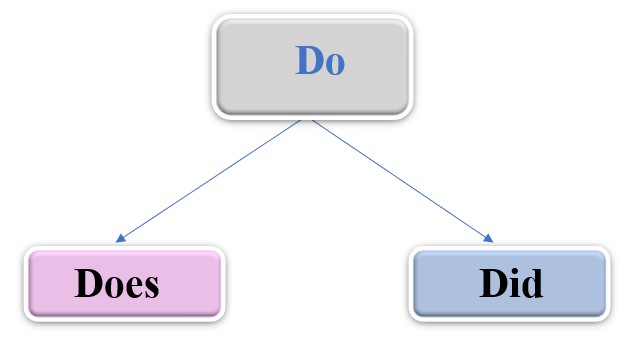
A) Do
- We use ‘do’ only in the present and future tense and when the subject is plural. Also, it is used with pronouns ‘I’, ‘you’, ‘they’, ‘we’ and plural nouns.
- The word ‘do’ is used to ask questions about present or future actions.
Examples :
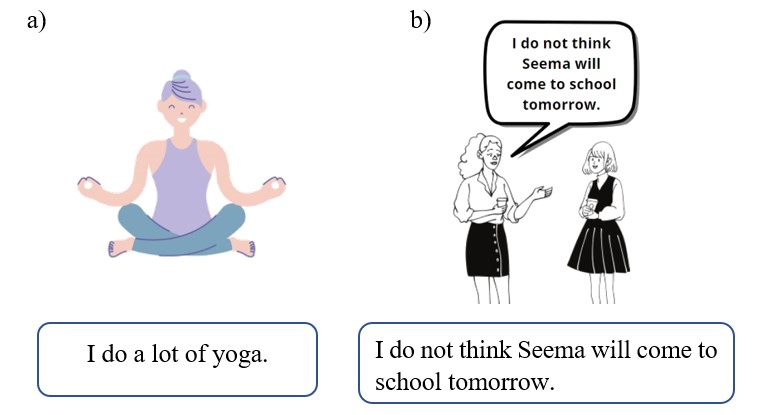
B) Does
- Similar to ‘Do’, we use ‘Does’ with a simple present tense. It is used when the subject is singular. It is also used with third person pronouns he, she and it.
Examples :
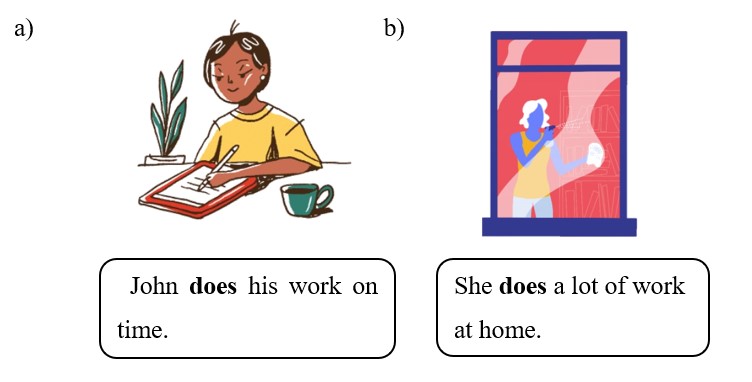
C) Did
- ‘Did’ is the past tense of ‘do’. We use it when we need to talk about something that happened in the past.
Examples :
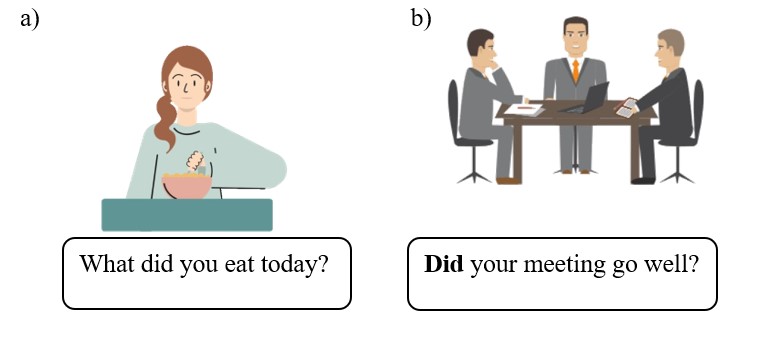
The Negative Forms of Do, Does, and Did
The negative forms of ‘do’, ‘does’, and ‘did’ are very easy. You just have to add the word ‘not’ after the ‘do’ word. The word ‘do’ becomes ‘do not’, ‘did’ becomes ‘did not’ and ‘does’ becomes ‘does not’.
Examples :
- I did not buy anything from the shop.
- Who does not love holidays?
- I do not like chicken.
Common Mistake
The word ‘Do’ is used to give an order to somebody, but never use ‘does’ to give an order. It is wrong.
Examples :
Correct - Do as I say.
Wrong - Does as I say.
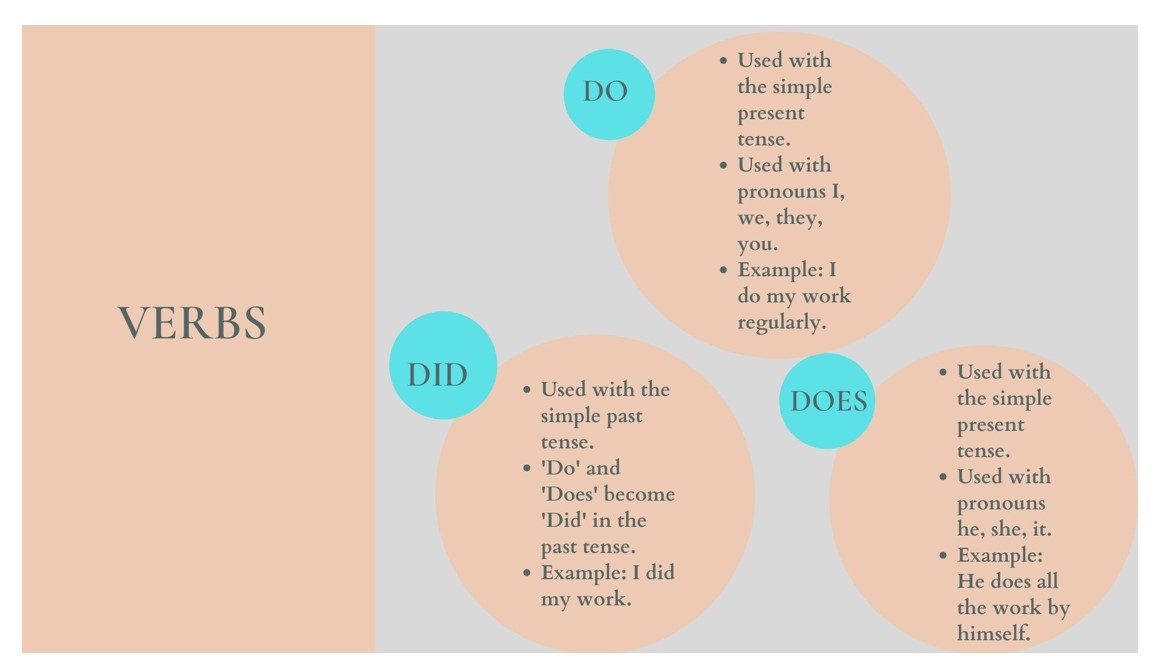
CBSE Schools In Popular Cities
- CBSE Schools in Bangalore
- CBSE Schools in Mumbai
- CBSE Schools in Pune
- CBSE Schools in Hyderabad
- CBSE Schools in Chennai
- CBSE Schools in Gurgaon
- CBSE Schools in Kolkata
- CBSE Schools in Indore
- CBSE Schools in Sonipat
- CBSE Schools in Delhi
- CBSE Schools in Rohtak
- CBSE Schools in Bhopal
- CBSE Schools in Aurangabad
- CBSE Schools in Jabalpur
- CBSE Schools in Jaipur
- CBSE Schools in Jodhpur
- CBSE Schools in Nagpur
- CBSE Schools in Ahmednagar
- CBSE School In Tumkur











